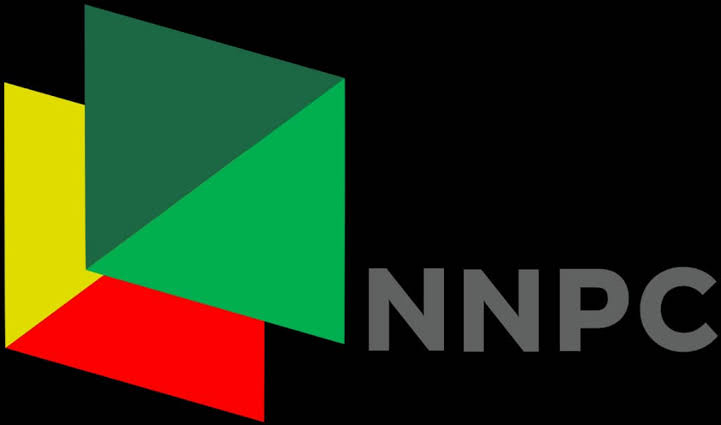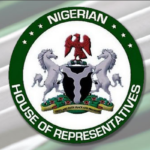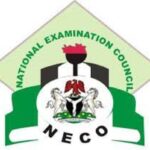By Dr Pius Nnolum
Ex-Emir Sanusi Lamido Sanusi, a former Governor of the Central Bank of Nigeria, CBN, from June 2009 to February 2014, on Thursday, December 7, 2023 claimed that “The NNPC Limited is the ‘most opaque’ oil company in the world,” and advised “that the President becoming a petroleum minister is not a good idea,” in an apparent swipe at President Bola Ahmed Tinubu. He made these positions known while delivering his remarks at the Bank Directors Summit organised by the Bank Directors Association of Nigeria in Abuja.
These comments have compelled this obligatory need to interrogate the governance ecosystem in the NNPC Ltd on the watch of Malam Mele Kyari so as to reach a clear understanding of how the national oil company is faring under his leadership.
President Tinubu, in an apparent tradition of his predecessor, ex-President Muhammadu Buhari, kept the position of the substantive Minister of Petroleum Resources to himself. He clearly has the power to appoint his cabinet and self as minister and ex-Emir Sanusi would do well to note this.
Several critical considerations, of course, drove this presidential decision but first a background context. Cut to the bone, energy and its associated infrastructure remain the key development drivers of both ancient and modern civilisations. It’s actually strange that in the morning of the 21st Century, many Nigerian state actors are blissfully unaware that much of the problems of socio-economic transformation are really complications of physical infrastructure – with energy at the epicentre.
Undeniably, energy systems tend to be high-cost investments but are clearly vital to a nation’s economic development and prosperity. Put simply to thrive in the choppy waters of rapid technology and business model changes, organizations that manage a nation’s energy sector require the right leadership. It is imperativeness for any leader to have a clear vision and articulate it well.
Today, National Oil Companies (NOCs) in Africa stand on the brink of significant disruption – and of substantial opportunity – as a new era of structurally lower oil prices challenges business models that have long relied largely on exploration and production of hydrocarbons. This scenario goes beyond the volatilities in the sector, seeded by the Middle East crisis and the Russia-Ukraine war.
The onerous responsibility to drive this behemoth energy corporation fell on the sturdy shoulders of Mele Kyari who was appointed the GMD of the now-defunct Nigerian National Petroleum Corporation (NNPC) by President Muhammadu Buhari, on July 8, 2019. Clearly, Kyari, an unassuming scientist who has traversed the entire value chain of the petroleum industry, has turned out to be the right pick as NNPC boss.
Perhaps his toughest call in an industry he has spent much of his professional life in, Kyari has responded to his top-draw responsibility by quickly taking charge in close synergy with his corporation’s oversight entity, the Ministry of Petroleum Resources. His four-year leadership has demonstrated a fundamental grasp of what fossil energy means and an adroit understanding of the imperativeness of circumspect governance of Africa’s preeminent NOC.
Kyari set sail by defining a clear vision of NNPC’s transformation and sending a clear message that the corporation’s lukewarm governance narratives of the past were gone for good. Recognising the imperativeness of inclusive governance, he considerably up-scaled engagements with various stakeholders to ensure that they were carried along in the Company’s operations.
Besides its role as the bedrock of the Nigerian economy, the petroleum sector has been one of the defining features of the country’s post-independence history. This fact centralizes NNPC in the nation’s political economy, given the oil corporation’s assigned role in the industry.
Not surprisingly, the corporation’s experience has been marked by struggles over what the corporation controls and over who controls it. Perhaps this unique centrality of the corporation in the Nigerian state has spawned its fair share of challenges and reproach.
It could be recalled that a 2010 joint report by Transparency International and Revenue Watch Institute found that NNPC had the poorest transparency record out of 44 national and international energy companies examined. It is heartening that within his four years in the saddle, the NNPC boss has changed that negative narrative.
With Kyari’s new vision, the NNPC is boldly anchored on the principle of Transparency, Accountability, Performance and Excellence (TAPE). Perhaps, one of Kyari’s most important and earliest governance initiatives that sounded a death knell to the extreme operational opacity reputation of the corporation is “Operation White.”
It is a presidential-mandated collaborative initiative driven by NNPC with the active participation of regulatory and security agencies as well as other stakeholders in ensuring that all molecules of regulated petroleum products imported by NNPC are well accounted for and utilised in the country. This initiative effectively ended the era of very poor transparency in the corporation’s governance style. I am not sure ex-Emir Sanusi is aware of this initiative.
Barely five months after publishing its 2018 Audited Financial Statement, the Kyari-led NNPC released its 2019 Audited Financial Statement with a 99.7% reduction in its loss profile from ₦803bn in 2018 to ₦1.7bn in 2019. On account of these unprecedented governance positives, the conservative Nigeria Extractive Industries Transparency Initiative (NEITI) lauded the corporation.
Even the ravages and disruptions of the COVID-19 pandemic did not derail the compelling focus, integrity of service delivery, operational stability and reasoned interventions by the NNPC boss.
Looking at the big picture, the NNPC Ltd’s management, under the firm guidance of Mele Kyari, has patriotically and assiduously worked towards building a stable oil industry for the nation’s growth and development. He has done a good job in posting resounding successes since stepping in the saddle.
Kyari had scaled a number of hurdles, including the mindless theft of Nigeria’s oil by criminal cabals and individuals, which had left Nigeria for a long time unable to meet its oil production quota. The NNPC Limited management, under Kyari’s astute leadership, launched the “Crude Theft Monitoring Application”.
The portal has application options for reporting incidences of crude theft, with prompt follow-up and responses, and another one for crude sales document validation. In a subsequent operation that followed, Kyari announced the discovery of a four-kilometer illegal oil connection line from Forcados Terminal into the sea which had been in operation for nine years.
Certainly, efforts at checkmating crude oil theft and illegal refineries have been yielding positive results as there has been a significant spike of daily oil production to 1.6 million barrels per day. In addition, according to Fourth Quarter 2022 figures released, Nigeria has regained its position as the largest crude oil producer in Africa, ahead of Algeria’s 1.021mb/d and Angola’s 1.088mb/d in November 2022.
The management of NNPC Limited under Kyari addressed persistent oil loss that the old NNPC had suffered before he became its helmsman in 2019. In 2022, the company posted its second consecutive year of ‘profit’ announcing N674.1 billion in the 2021 financial period and growing it from N287 billion in 2020.
The figure represented an increase of N387 billion or 134.8% when compared to the previous N287 billion recorded in 2020. Kyari, who made the disclosure via the verified Twitter handle of the company, said the improvement followed the approval of the 2021 audited financial statements by the board of the oil company.
Aside from recording profit for the company, Kyari has also led the NNPC Limited to resolve age-old disputes with its business partners notably the International Oil Companies (IOCs). This is part of its efforts at boosting Nigeria’s crude production and unlocking investments in the Deepwater space in the aftermath of the coming into being of the Petroleum Industry Act (PIA).
Consequently, the NNPC and the IOCs signed various production sharing contracts (PSCs) agreements that would ensure the production of about 10 billion barrels of crude oil and generate over $500bn revenue.
A notable accomplishment of Kyari’s leadership of NNPC Limited is the payment of Nigeria’s joint venture cash call arrears to the IOCs totaling $5.1 billion. This was made possible through the introduction of the Alternative Funding Approach (AFA), which replaced the erstwhile cash-call payment model.
Besides, NNPC signed various Memoranda of Association (MoU) with many countries, including the national oil companies of Ghana, Gambia, Guinea, Guinea Bissau, and Sierra Leone in furtherance of the planned Nigeria-Morocco Gas pipeline project. The Nigeria-Morocco Gas Pipeline (NMGP), an initiative of the federal government of Nigeria and the Kingdom of Morocco, is a 5,600 kilometers gas pipeline project traversing 13 African countries namely: Nigeria, Benin, Togo, Ghana, Cote d’Ivoire, Liberia, Sierra Leone, Guinea, Guinea Bissau, The Gambia, Senegal and Mauritania to Morocco.
But, by far, one of the most impressive accomplishments of Kyari’s stewardship at NNPC Limited is the flagging off in November 2022 of the Kolmani Integrated Development Project in Bauchi State, marking the commencement of effort to commercially exploit oil in the Northern part of Nigeria.
The Kolmani Oil Field, estimated to have a reserve of about one billion barrels of crude oil, OPL 809 and 810, lies in the Gongola Basin of the Upper Benue Trough, straddling Bauchi and Gombe States. The oil blocks are owned by the NNPC Limited as a concessionaire with New Nigeria Development Company Ltd, Africa Oilfield Movers Ltd, and SEEPCO as partners. The well is expected to produce 50,000 barrels of crude per day during the first phase.
Going forward and putting negative characterisation of NNPC Limited behind, the Kyari leadership as it is has simply chosen the solemn path of sharply focusing on the subsisting challenges in the sector. The leadership stated it was focused at the moment on delivering the task that had been set for the national oil company, stressing that everyone was free to air their opinion. NNPC’s Chief Corporate Communications Officer, Olufemi Soneye, told the media that there would be no need for an official response to the claims made by the ex-CBN boss.
He explained that constant responses could hinder the enormous task before the oil company, adding that NNPC would rather concentrate on handling the work that it was established to do.
According to Soneye, “Everyone is entitled to their opinion. Constant responses to every individual can hinder our work. Our focus remains on delivering energy security, managing ongoing projects, and implementing reforms.”
But before the Senate recently, the NNPCL GCEO had already made in-sector clarifications that addressed Sanusi’s remittance concerns. He had buttressed that maintaining the energy security target has fostered the confidence that in 2024, Nigeria will become a net exporter of petroleum products.
He affirmed that no subsidy was charged to the federation, adding that the NNPC had contributed N4.45 trillion as direct revenue into the federation account in a combination of taxes, royalties and dividends and paid N406 billion as dividend to Federal Government’s account from July 2023.
The narratives about the success stories of NNPC under Kyari’s leadership promise to be inexhaustive as he continues to come up with one innovation after another.
Dr. Nnolum, a public affairs analyst, writes from Lagos.



